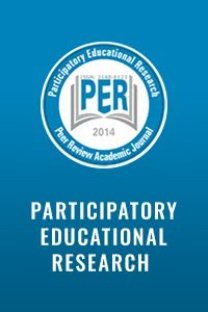Examining the values in life science curriculum in terms of “consistency”
We gain the values that guide human being’s lifelong behaviors during our social life from our family, peer groups, educational institutions, media, and so on. Those values also form our evaluation criteria. Considering that skills learned during childhood become permanent, values that are taught to students must be in integrity, consistency and be in a form that does not make any conflict for student. Handling the issue in this context, the values included in Life Science Course Curriculum (LSCC) have to be examined in terms of consistency. This study aims to find out consistency in values included in LSCC distributed according to the classes and themes, whether there are conflicting values, and also comparing values according to the individuality and sociality. In this study, document analyses method has been used. Primarily, the values included in LSCC have been determined. Distributions of values according to the classes and themes, presence of attribute of individuality or sociality, and consistency of values have been examined. Based on analyzing the collected data, the researcher has come to the conclusion that “patriotism” is the most emphasized value and it is available in each class and theme. Additionally, love, tolerance, respect and justice are the most repeated values. Truthfulness, honesty and peace are the least repeated values in all classes.
Keywords:
Life Science, Values Consistency,
___
- Altıntaş, M. E. (2012). Values education approaches from the perspective of the predicament between the ındividual and the community. Journal of Values Education, 10 (24), 31-54.
- Bilsky, W., & Schwartz, S. H. (1994). Values and personality. European Journal of Personality, 8, 163-181.
- Candan, D. G. & Ergen, G. (2014). Analysis of the 3th class life science textbooks about that including basic universal values. Uşak University Social Sciences Journal. 7 (1), 134- 161.
- Cüceloğlu, D. (1999). Human and its behavior. Istanbul: Remzi Publications.
- Çekin, A. (2012). The acquisitions of course of religion culture and knowledge of ethics for elementary education in connection with values education: A content analyses. Journal of Academic Researches in Religious Sciences. 12 (2), 105-119.
- Lovat, T., Toomey, R., & Clement, N. (2010). International research handbook on values and student wellbeing. Springer.
- Merey, Z., Kuş, Z. & Karatekin, K (2012). Comparison of elementary social studies curricula of turkey and the united states on values education. Educational Sciences: Theory & Practice. 12 (2). 1613-1632
- Ministry of National Education. (2009). Life science course curriculum and instruction manual for 1 th, 2nd and 3th classes. Ankara: MNE Publications.
- Senemoğlu, N. (2004). Development, learning and teaching. Ankara: Gazi Publications.
- Schwartz, S. H. (2012). An overview of the schwartz theory of basic values. Online Readings in Psychology and Culture, 2(1). http://dx.doi.org/10.9707/2307-0919.1116
- Tezcan, M. (1997). Sociology of education. Ankara
- Tozlu, N. (2003). Thoughts on our educational problems. Ankara: Mikro Publications
- Yıldırım, A. ve Şimşek, H. (2011). Qualitative research methods in the social sciences. Ankara: Seçkin Publications.
- Yılmaz, S. (2013). Teacher candıdates’ vıews regardıng the values aımed to be taught ın socıal studıes lessons. Adıyaman University Social Sciences Journal, 6 (14), 645-680.
- Yaşaroğlu, C., (2014, September). The investigation of classroom teachers’ views about life science curriculum in the context of values education”, Paper presented at the V. European Conference on Social and Behavioral Sciences, Russia.
- ISSN: 2148-6123
- Yayın Aralığı: Yılda 6 Sayı
- Başlangıç: 2014
- Yayıncı: Özgen KORKMAZ
